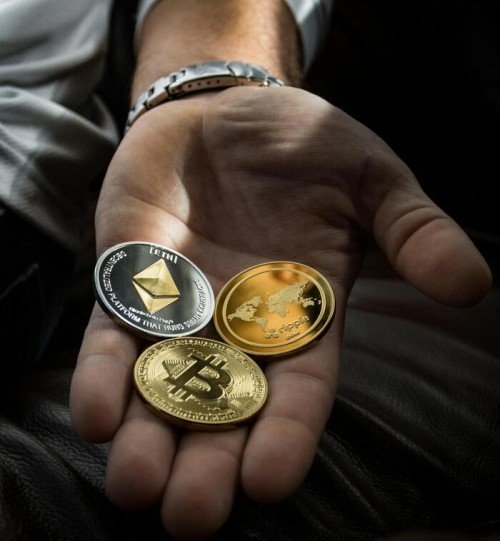Discover the Future of Digital Money

Money has always evolved — from shells to coins, from paper to plastic, and now, from the physical world to the digital realm. The rise of cryptocurrencies marks not just another financial innovation, but a global shift in how humans understand trust, ownership, and value. To discover the future of digital money is to explore a world where code replaces intermediaries, transparency replaces secrecy, and opportunity becomes truly borderless.
The Evolution of Currency
For centuries, money has been a tool of exchange defined by governments and controlled by banks. But digital currencies have disrupted this model. Bitcoin’s emergence in 2009 introduced a radical idea — a decentralized, peer-to-peer financial system that operates without central authorities. Since then, thousands of cryptocurrencies have followed, each offering unique technologies and visions: Ethereum brought programmable contracts, Solana redefined transaction speed, and stablecoins bridged the gap between volatility and stability. The modern financial ecosystem is being rebuilt on blockchain — a transparent and immutable ledger that ensures trust without needing a third party.
The Core of the Revolution — Blockchain
At the heart of digital money lies blockchain technology. Imagine a public database that records every transaction securely, verifiably, and permanently. This innovation eliminates the need for traditional verification systems, enabling faster and cheaper transactions across borders.
Blockchain is more than a ledger — it’s a foundation for digital trust. From decentralized finance (DeFi) to tokenized art and NFTs, the same principle applies: ownership can now be represented digitally, transparently, and globally. This concept has spread beyond finance. Governments, healthcare systems, and even a translation agency managing multilingual blockchain projects use distributed ledgers to store data securely and ensure transparency. The impact of this technology is expanding far beyond coins and tokens.
The Rise of Digital Economies
The digital money revolution has also given birth to entirely new economies. Web3, the next iteration of the internet, is being built on decentralized systems. Users are no longer just consumers — they’re participants, creators, and investors in the networks they use.
Cryptocurrencies enable microtransactions, decentralized ownership, and global collaboration. Artists can sell digital art directly to collectors; gamers can earn real income through play-to-earn platforms; small businesses can access funding through decentralized finance without relying on traditional banks. In developing countries, digital money offers something even more powerful — financial inclusion. People without access to banks can store, send, and receive funds through a smartphone. The blockchain has become a gateway to the global economy for millions.
Regulation and Trust
For digital currencies to reach mainstream adoption, one key element must be addressed: trust. Governments around the world are working to regulate crypto markets, balance innovation with security, and protect investors from fraud. Regulation may sound restrictive, but it’s essential for stability. Just as the early internet needed governance to mature, digital money needs structure to thrive. Countries like Singapore, Switzerland, and the UAE are already setting examples by creating transparent, business-friendly frameworks that attract blockchain startups and investors.
Central Bank Digital Currencies (CBDCs)
A major step toward the future of money is the development of Central Bank Digital Currencies (CBDCs). These are digital versions of national currencies issued directly by governments — blending the efficiency of blockchain with the reliability of state control.
China’s digital yuan, the European Union’s digital euro, and pilot programs in Africa and Latin America demonstrate that the idea is gaining momentum. CBDCs could make payments faster, reduce corruption, and modernize monetary systems worldwide. However, they also raise questions about privacy and surveillance. The balance between innovation and individual rights will be one of the defining debates of this decade.
The Intersection of Language and Technology
As the crypto economy becomes global, communication between cultures and markets has become essential. Blockchain whitepapers, crypto projects, and DeFi platforms often need to reach investors and users in multiple languages. This is where linguistic expertise plays a key role.
Many international crypto startups collaborate with a translation agency to ensure their technical documentation, websites, and smart contract explanations are accurately localized. Clear and precise translation helps build trust across linguistic boundaries — a crucial factor in a decentralized financial world built on global participation. Language, after all, is the oldest bridge between humans — and in a future driven by code, it remains vital for inclusion and collaboration.
Environmental Innovation
No discussion about the future of digital money would be complete without addressing sustainability. Early cryptocurrencies like Bitcoin faced criticism for their high energy consumption, but the industry is evolving rapidly.
Ethereum’s shift to a proof-of-stake model has reduced its energy usage by over 99%. New blockchains are being designed with carbon-neutral consensus mechanisms, and many crypto projects now fund reforestation and renewable energy initiatives. Green crypto is not a dream — it’s the next phase of responsible innovation.
The Future Is Already Here
From digital wallets to cross-border payments, crypto adoption is accelerating. Major companies like Tesla, PayPal, and Visa are integrating cryptocurrencies into their systems. Even traditional banks, once skeptical, now explore blockchain for faster and cheaper settlements. The financial landscape of the next decade will be hybrid — part decentralized, part traditional — blending stability with innovation. Digital money will continue to evolve, shaped by technology, regulation, and global cooperation.
A Borderless Financial Future
To discover the future of digital money is to witness the rebirth of finance. Blockchain has democratized opportunity, empowered individuals, and challenged centuries-old systems. But perhaps the most exciting part of this revolution isn’t just technology — it’s humanity. It’s the collaboration between cultures, disciplines, and ideas that drives this new economy forward. The world is becoming more connected, more transparent, and more inclusive.
Money is no longer just a medium of exchange — it’s a language of trust, innovation, and freedom. And in that language, the future is already speaking.